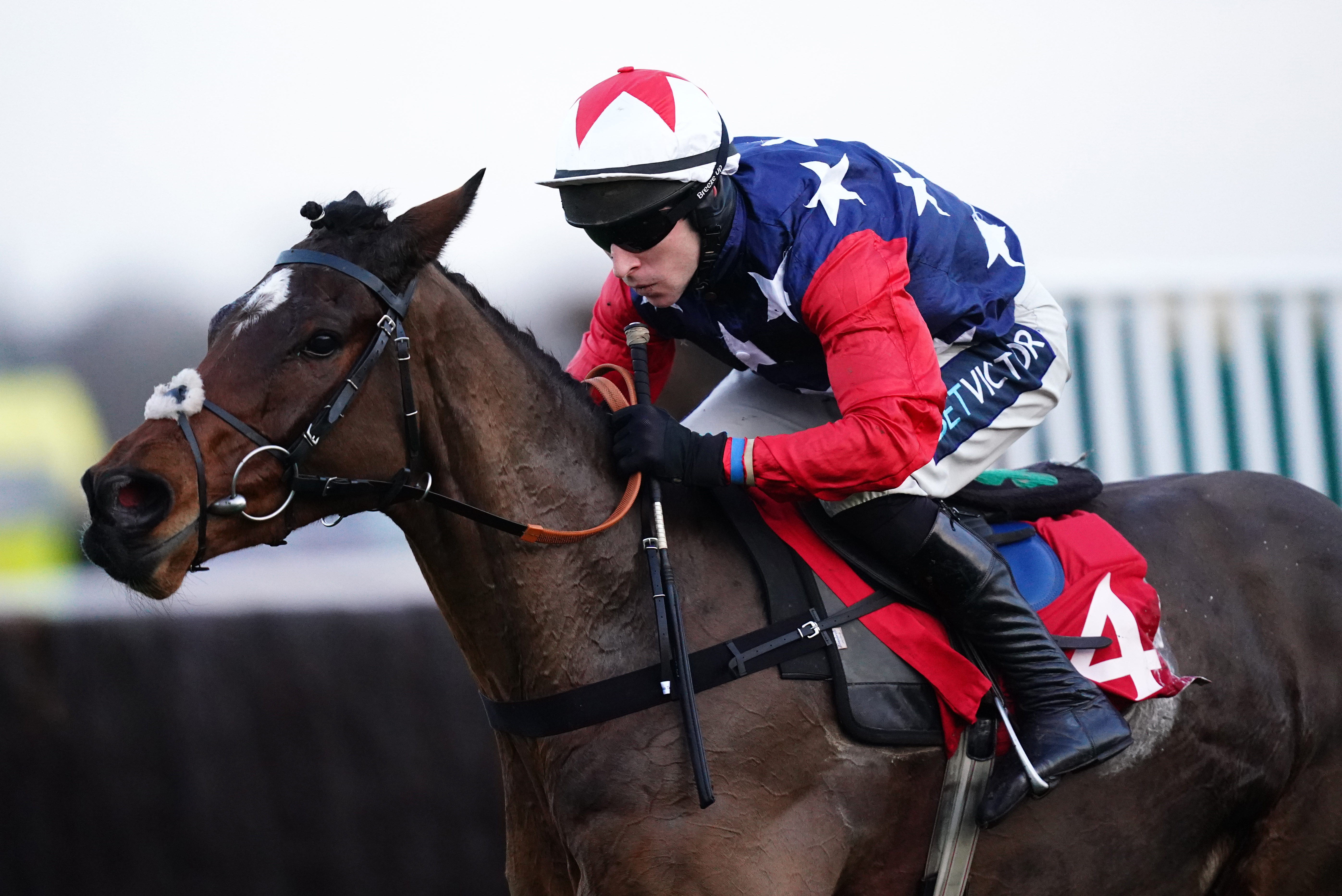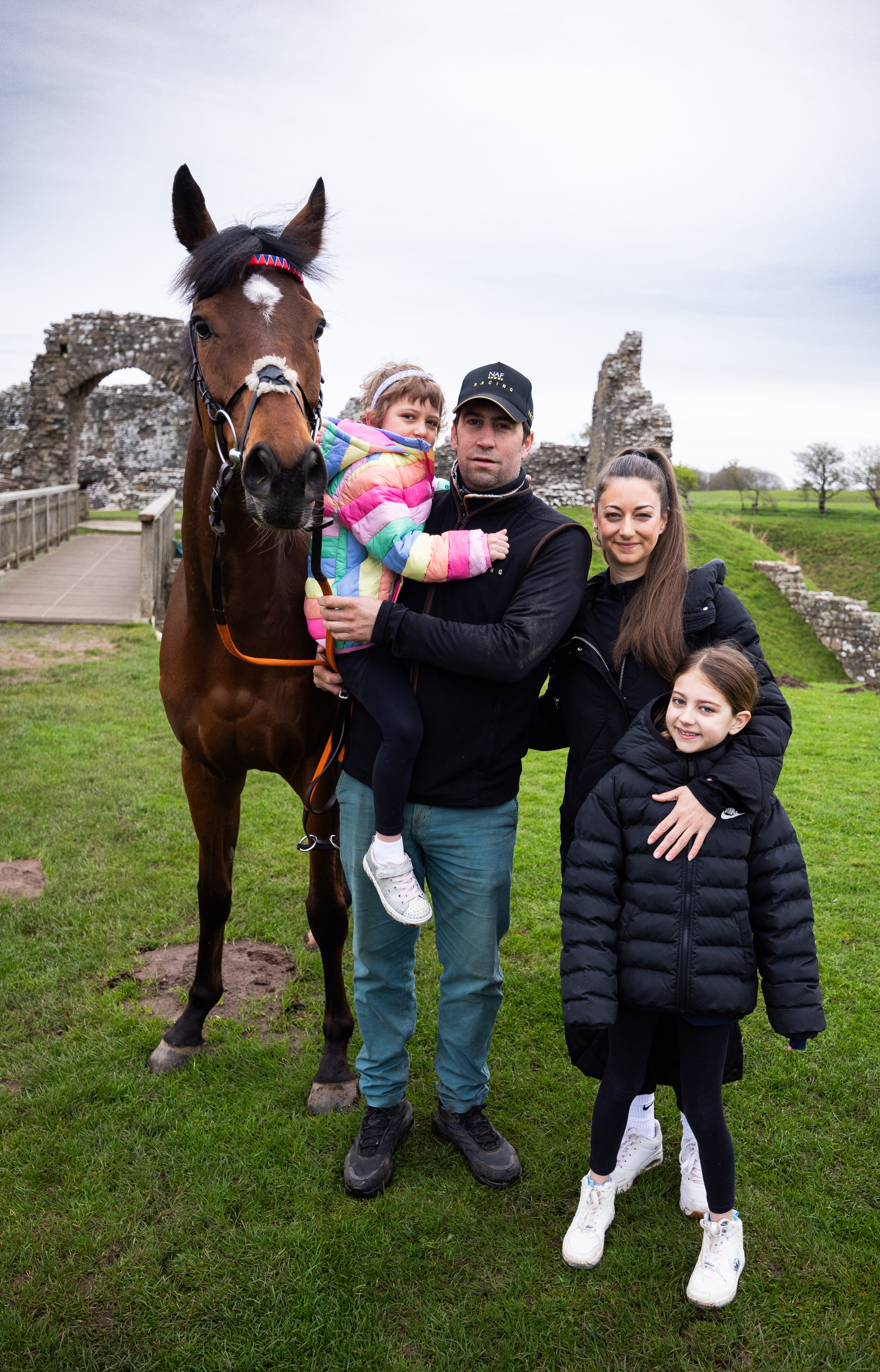Young Fashion Judge with a Brave Story
A heartwarming story emerged from Ladies' Day at Aintree as a six-year-old girl took on the role of a fashion judge. What makes her appearance even more special is her courageous battle with cancer.
Connection with 'the Public's Horse'
Betsy Williams, the young girl, will be cheering on a remarkable horse named Kitty's Light at the upcoming Grand National. This special horse, dubbed 'the public's horse,' has played a significant role in the Williams family's journey through cancer.
A Story of Hope and Joy
Trained by Betsy's father, Christian Williams, Kitty's Light won the Scottish Grand National last year, bringing joy to the family amid the challenges of battling leukemia. The horse's victories have been a beacon of hope for the family, especially for young Betsy.
Family's Emotional Journey
The Williams family's emotional journey through Betsy's cancer diagnosis and treatment has been marked by moments of despair and hope. From grueling rounds of chemotherapy to moments of joy watching Kitty's Light race, the family has shown incredible strength and unity.

Support and Resilience
Amid the challenges, the family has found solace in the racing world's support and the symbol of hope that Kitty's Light represents. The horse's victories have brought joy and positivity during a difficult time, uniting the family in their fight against cancer.
Looking Towards the Future
As Betsy continues her treatment journey, the family remains hopeful and united. The upcoming Grand National holds special significance for them, with Kitty's Light symbolizing resilience, hope, and the possibility of triumph over adversity.
Frequently Asked Questions
How do you maintain a racehorse’s mental well-being?
The mental health of a racing horse is just as important as its physical condition. Mental stimulation, gentle handling, and regular pasture turnout all contribute to the psychological well-being of a racehorse. To prevent stress, it is important that the horse be socialized and has a stable and calm environment.
How important is a horse’s pedigree when it comes to winning races?
Pedigree is a good indicator of potential but it’s not the only factor that determines a horse’s performance. Lineage may indicate that a racehorse has inherited an aptitude for speed or durability, but other factors like training, temperament and health are equally important. Training can enhance a horse’s natural abilities, and allow it to perform better than horses with more impressive pedigrees.
What is a horse’s first step of training?
During the first phase of racing a horse, there is a critical “breaking” stage where the horses become accustomed with a saddle, bridle or the weight from a rider. During early sessions, the horse must be taught to accept human contact and wear the equipment throughout his racing career.
What is the role a jockey plays in the training and preparation of racehorses?
Racehorses are trained by jockeys, who play an important role. Not only do they ride the racehorses during workouts and give feedback, but they help educate the horse on racing tactics. A good jockey will become familiar with the horse’s strengths as well as its weaknesses. This is vital for race preparation.
Does a racehorse need a certain type of shoe?
Racing plates are thinner and lighter than normal horseshoes. These plates offer the necessary grip on the track while minimizing their weight. A farrier skilled in working with racehorses will carefully select and fit these shoes to match each horse’s hoof conformation and the specific racing surface they will be running on.
What is the age at which a horse should begin racing training?
Horses that are two years old can begin training, although they may start with basic training. Their bodies are still young, and can adapt to the learning process. The exact timing depends on the horse’s maturity and temperament.
Statistics
- The average cost to train a thoroughbred racehorse for one year can exceed $50,000, accounting for expenses related to training, boarding, and veterinary care.
- Gastrointestinal issues affect up to 90% of racehorses during their training, emphasizing the need for careful dietary management.
- Studies suggest that proper early training can reduce the risk of musculoskeletal injuries in racehorses by up to 50%.
- An extensive survey indicated that over 90% of racehorse trainers utilize swimming as a low-impact exercise in their conditioning routines.
- Around 80% of thoroughbred racehorses begin their racing careers by the age of two, according to industry estimates.
- Statistically, less than 1% of thoroughbred foals born each year will go on to win a stakes race.
External Links
bloodhorse.com
theridinginstructor.net
jockeyclub.com
horseracing.com
thoroughbred-racing.net
britishhorseracing.com
How To
How to cool down a racehorse after a workout
After exercise, it is essential to cool down a horse to prevent muscle stiffness. Begin by walking slowly on a longer rein to gradually reduce the heart and respiratory rate of the horse. During this time, you can assess your horse to see if it is showing any signs of injury or distress. Then, gently stretch the legs and neck. Finish by grooming your horse. This will relax the muscles, and you can check for any cuts or injuries.

